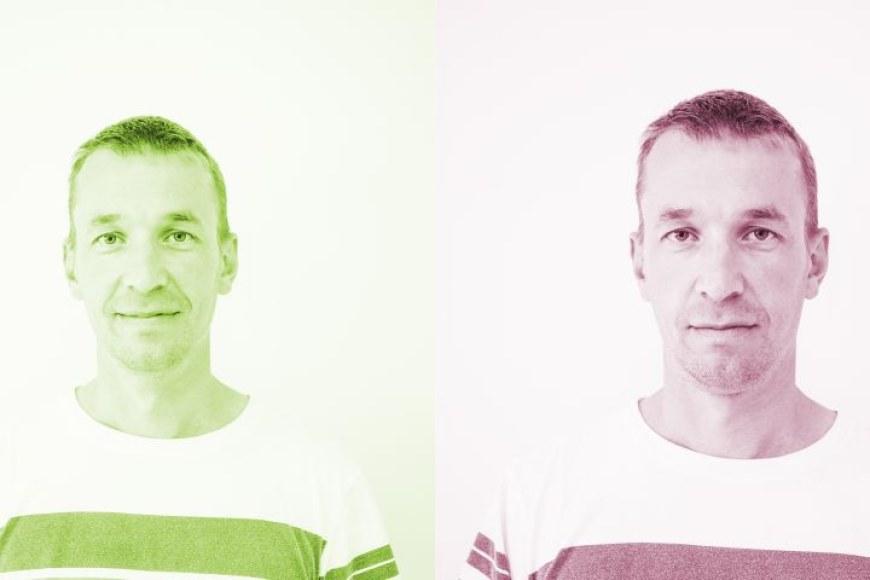Feedback helps make the world a better place

This article was originally published in Unit, the magazine of Tampere Universities.
The spark that inspired the creation of HappyOrNot was Heikki Väänänen’s personal frustration with salespeople who seem to play a game of hide-and-seek with unwitting customers. What if customers could give feedback on the spot, quickly and easily?
Väänänen, who had recently graduated with a master’s degree in engineering, settled on the iconic smiley face as a counterweight to salespeople lurking behind counters. His mission was to develop a globally recognisable feedback system.
HappyOrNot’s smiley terminals are simple: they feature four buttons, ranging from very smiley to very frowny. There is no “I don’t know” option, so each click means something.
The idea held such promise that Väänänen and an old friend from university, Ville Leväniemi, decided to leave their previous venture and take the plunge into entrepreneurship. They started out by thoroughly canvassing and testing their business idea. Would the clicks bring long-term benefits to clients?
Although many customer service experts were doubtful about their idea, Väänänen and Leväniemi also received valuable support from Finnish companies. The first client to install a smiley terminal was Valintatalo, a small grocery store in Epilä, Tampere. HappyOrNot's international breakthrough came when London's Heathrow Airport deployed smiley terminals across the airport.
“Millions of passengers from all over the world noticed our smiley terminals when passing through Heathrow. Suddenly we were inundated with calls and emails,” Väänänen says.
Smileys from Greenland to South America
HappyOrNot’s smiley faces have already been clicked more than a billion times in 117 countries. More than 3,000 companies are using the feedback to improve customer satisfaction or measure employee engagement levels, among other things.
Clients include airports, restaurants, retail chains and healthcare companies. HappyOrNot has invested a great deal in consolidating its position in its main market, the US.
“The USA is the ultimate market for a company that is looking to expand globally. It is huge but monolingual, whereas entering the European market is challenging because of the linguistic and cultural diversity of the continent,” Väänänen explains.

On average, 20 per cent of people who walk past a smiley terminal will click it. If the terminal is placed close to the exit of a premises, the response rate may be much higher.
“Companies are thrilled about the opportunity to receive real-time feedback on any changes they make. Of course, the feedback must first be transformed into actionable data. Our latest applications also offer the possibility to answer follow-up questions and add comments to provide more insightful feedback.” For example, the HR department of a company will benefit from being able to keep a finger on the pulse of the workforce and learn how employees felt about their day.
“Instant feedback allows companies to take immediate corrective action without having to wait for the results of an annual employee well-being survey,” Väänänen adds.
Student life is the best for an entrepreneur
Before launching HappyOrNot, Väänänen studied industrial engineering and management at Tampere University of Technology, one of the predecessors of the new Tampere University.
“I was not sure what I wanted to do after graduating from upper secondary school. I decided to go to university to study industrial engineering and management because it opens doors to a variety of careers,” Väänänen says.
Väänänen was in his second year of study when he and his friends established their first business, a company that produced computer code for other companies. Soon it was merged with a gaming company, and Väänänen started developing mobile games.
“Starting a business before graduation is easy because a university is an ideal platform for testing different ideas. As students usually have modest living expenses, a failed business is not the end of the world. Being an entrepreneur made my time at university not only more fun, but also more productive: I specifically chose courses that helped me gain more knowledge about business and management,” he says.
In addition, Väänänen was able to put his newly acquired knowledge into practice right away, which made his studies feel easier.
“It is important to be familiar with all the aspects of business, from marketing and sales to legal issues,” Väänänen points out.
Väänänen encourages aspiring entrepreneurs who are seeking international growth to think big. In our fast-paced world, there may not be time for gradual expansion.
“It is also important to put together a winning team: a good idea is not enough if you do not have the right people by your side,” he notes.
Heikki Väänänen
- received his Master of Science in Technology degree from Tampere University of Technology (TUT) in 2008. He majored in industrial engineering and management.
- is CEO and co-founder of HappyOrNot.
- spent a period studying in Singapore in his fourth year at TUT. He moved back to Tampere after living in the USA for two years.
- offers the following advice to new entrepreneurs: “Don't let minor setbacks get you down. I believe it is better to be open and bounce your ideas off business professionals than to be overly cautious. It will help you gain valuable insight: if eight out of ten people have the same opinion of your idea, they must be on to something.”
Author: Sanna Kähkönen







